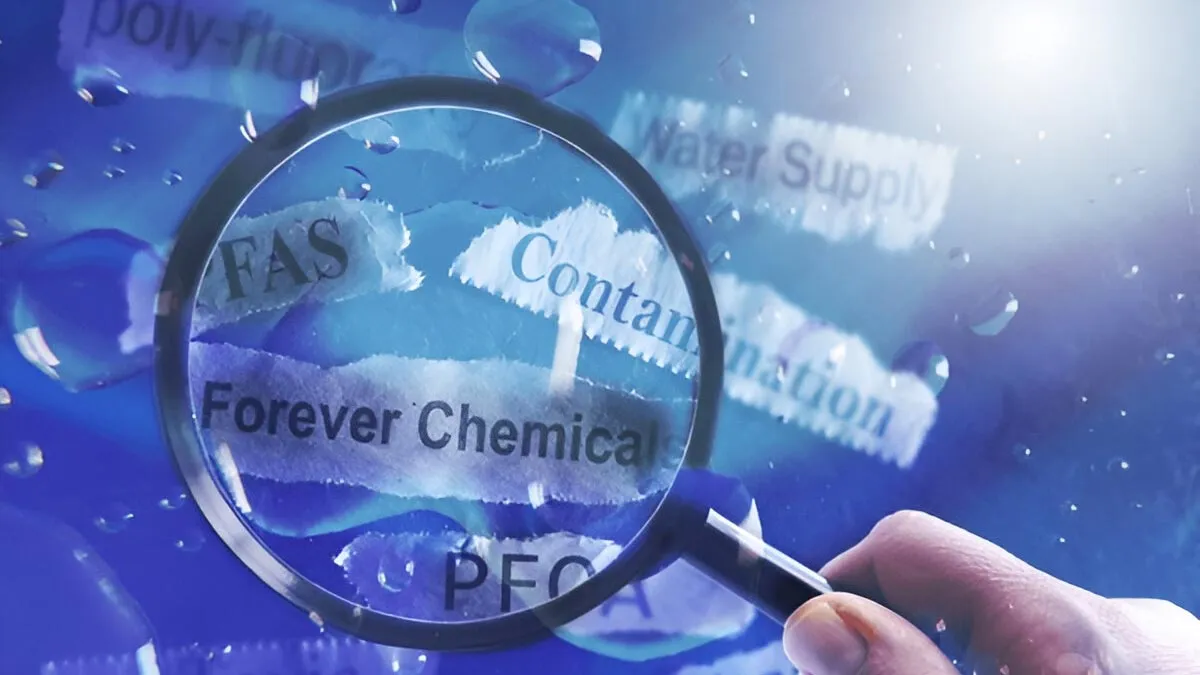
Just because you don't see it, doesn't mean it isn't there. This goes for the chemicals that remain hidden from the naked eye but are harming your health everyday.
Forever Chemicals, also known as Per- and Polyfluoroalkyl Substances or PFAS, are a group of chemicals that have been used in consumer products since the 1950s. Found in items like non-stick cookware, water-resistant clothing, food packaging, and even some cosmetics, PFAS are valued for their durability, but that’s also what makes them dangerous. Over time, their buildup has been linked to serious health issues, including hormone disruption, liver damage, reduced immunity, and even certain cancers.
Table of Content:-
Also Read: Is Packaged Popcorn Healthy? Expert Shares How PFAS Can Cause Cancer
What Are Forever Chemicals?

Ashwin Bhadri, Founder and CEO of Equinox Labs, describes forever chemicals, or PFAS as synthetic compounds that stubbornly resist breaking down in the environment, earning them the moniker “forever.”
For those who aren't aware, it may come as a shock to find out that PFAS are found in a range of everyday items like nonstick cookware, waterproof gear, food packaging, firefighting foams, and even some personal care products. "This persistent nature leads to their accumulation in soil, water, and human bodies, raising serious health and environmental concerns," Bhadri tells the OnlyMyHealth team.
How Are Humans Exposed To PFAS?

According to the National Institute of Environmental Health Sciences, people are most likely exposed to PFAS by consuming PFAS-contaminated water or food, using products made with PFAS, or breathing air containing PFAS.
This means forever chemicals can enter the body through contaminated drinking water, foods packaged with PFAS-containing materials, and inhalation of dust from household products like stain-resistant carpets and upholstery. They can also be absorbed through the skin when using certain personal care products.
"Once in the body, these chemicals build up over time because they don’t break down easily. This bioaccumulation can increase the risk of serious health problems such as immune system disruption, liver damage, and certain cancers. The risks extend to children, where exposure has been linked to developmental and behavioural issues," Bhadri explains.
A recent Indian study published in the Journal of Hazardous Material warns they’re becoming a growing threat across the country. The research, which looked at contamination across several Indian states, found that PFAS levels in water could rise sharply over the next 30 years, especially in industrial regions. States like West Bengal and Tamil Nadu face higher exposure risks due to their high fish consumption. Yet, India’s monitoring and regulations around PFAS remain in early stages.
Health Risks Posed By Forever Chemicals

Bhadri shares chronic exposure to PFAS has been connected to increased cholesterol levels and a higher risk of cardiovascular issues. There is also evidence linking these chemicals to thyroid dysfunction, which can impact metabolism and energy levels.
He adds that in pregnant women, exposure has been associated with complications like preeclampsia and lower birth weights in babies. Additionally, immune system suppression caused by PFAS can make people more susceptible to infections and reduce vaccine effectiveness.
According to a study published in Environmental Toxicology and Chemistry, PFAS have been linked to serious health issues, including liver damage, hormone imbalances, fertility problems, and even cancer. While most data focuses on a few older PFAS compounds, hundreds of others still lack safety information.
How To Reduce Daily Exposure To Forever Chemicals
To limit exposure, consider:
- Replacing nonstick cookware with alternatives like stainless steel, cast iron, or ceramic.
- Swap out waterproof or stain-resistant clothing and textiles for untreated, natural fibre options.
- Filter drinking water with a high-quality activated carbon or reverse osmosis system.
- At work, ensure proper ventilation and dust control in environments where PFAS may be present.
- Be mindful of product labels and choose certified PFAS-free alternatives.
Conclusion
Even though PFAS or “forever chemicals” are hard to detect, their impact on our health is very real. From hormone disruption to cancer risks, their presence in everyday items is a growing concern, especially in India, where regulation is still catching up. But being informed is the first step. By making conscious choices, like reading product labels, avoiding non-stick cookware, and filtering our drinking water, we can reduce our exposure. It’s not about fear, but about awareness and action to protect our health and that of future generations.
Also watch this video
How we keep this article up to date:
We work with experts and keep a close eye on the latest in health and wellness. Whenever there is a new research or helpful information, we update our articles with accurate and useful advice.
Current Version